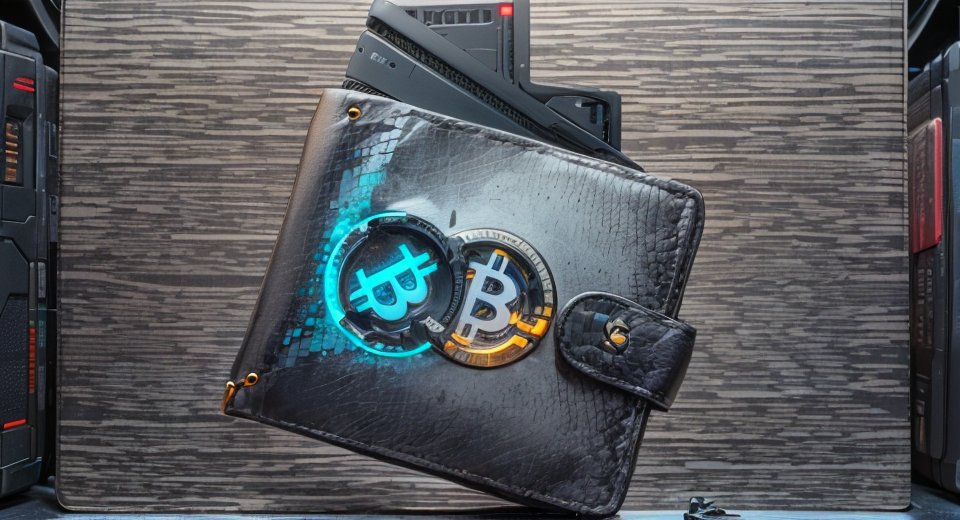Custodial Wallet
A custodial wallet, also known as a hosted wallet, is provided and managed by a third-party service, such as a cryptocurrency exchange. When you use a custodial wallet, the private keys associated with your wallet are held and managed by the service provider. This means you don't have direct control over your private keys. Instead, you rely on the security and services provided by the custodian.
Think of it like a bank where you keep your money. The bank takes care of everything for you, like keeping your money safe and helping you with transactions. The company that runs the wallet takes care of all the technical stuff, and you just use it like an app.
Pros:
- Easier to use, like using a phone app.
- If you forget your password or lost access, the company can help you.
Cons:
- You're depending on the company to keep your money safe.
- You might not have as much freedom to use different types of digital money.
Non-Custodial Wallet
(Also known as "personal Wallet" when adding addresses)
A non-custodial wallet/self-hosted wallet, is a wallet where you have full control over your private keys and funds. You generate and manage the private keys yourself, often through a software application, hardware device, or paper wallet.
Imagine you have a secret box at home where you keep your money. You're the only one who has the key to open it, so you're in control. In crypto, a non-custodial wallet is like that secret box. You create it yourself and only you have the key to access it.
Pros:
- You have full control over your digital money.
- Your money is more secure because you're in charge.
Cons:
- It might be a bit trickier to set up and use.
- If you lose the key (like forgetting a password), you could lose your money forever.
In a nutshell, custodial wallets are like using a bank for your digital money, where they handle everything. Non-custodial wallets are like having your personal vault at home, where you're in charge of keeping things safe.
What happens if I withdrew crypto into my wallet, but its missing?
If you withdrew for example, USDT from Coinut into your wallet and it is missing from the destination wallet, here are the steps you can take:
Coinut currently only supports withdrawals via Ethereum (ERC-20) and TRON (TRC-20). If you did not send the USDT to the wrong wallet address, chances are that you've sent the USDT via the wrong network.
Thankfully, Ethereum addresses are interoperable, meaning you use the same address across all EVM-compatible networks. If you have an Ethereum address, it can be used on any other EVM-compatible chain like Polygon, BNB Chain, Arbitrum, Avalanche, Fantom, Optimism, Aurora, vice-versa.
If your wallet is a non-custodial wallet, you simply have to switch the view to Ethereum and you should be able to see your USDT (on Trustwallet, Bitkeep, and many other apps, this function is on the top right-hand corner). If your wallet is non-custodial, you are given the seed phrase when you create a new wallet.
If your wallet is a custodial wallet, you might have to reach out to the wallet provider customer service to see if they could send the funds back to you.
Other examples of non-custodial wallets include:
| Atomic Wallet | Binance Wallet | Blockstream Green |
| Blocto | Brave Wallet | Coin98 |
| Coinbase Wallet | ImToken | Ledger |
| Mathwallet | Metamask | Nexo Wallet |
| Safepal | Token Pocket | Token Wallet |
| Trezor | TronLink | Trust Wallet |
| ViaWallet | Walletconnect | Zixipay |
RISK DISCLOSURE: ⚠️
Digital payment token investments, such as cryptocurrencies, are not guaranteed by service providers or cryptocurrency exchanges and the government. It is crucial to exercise caution in investing, including the awareness that a part or all of the capital may be lost and may not be recovered, especially in cases of high price volatility or down market, bankruptcy, seizures and other factors. Hence, the user’s risk tolerance, investment appetite or capacity for loss should be set firstly, and they should observe safe and knowledgeable investment practices accordingly. For more information, please visit MAS' website.
IMPORTANT NOTE: 📢
Coinut.com is a financial entity regulated as a Money Services Business in Canada and an exempt entity under the Payment Services Act in Singapore. Please be reminded that cryptocurrency trading is highly risky and is not suitable for the general public. For more information, please refer to Risk Warnings and Risk Statements.

